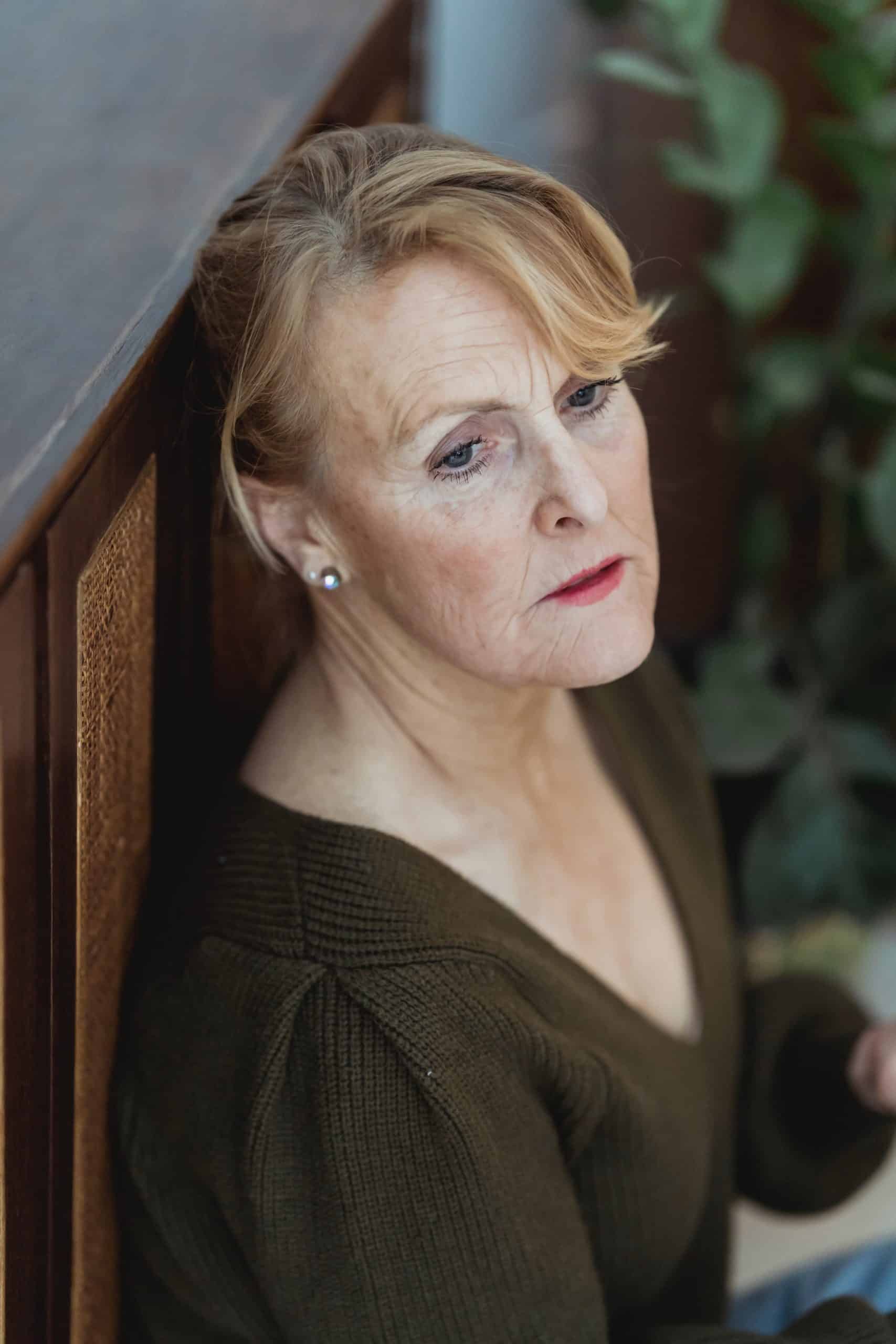What our clients say:
My father died, leaving me much less that my brother and sister. Other lawyers told us they could not help, but Mr. Legh took on my case and was able to get me a very fair settlement. I am so glad we found Stevenson Luchies & Legh.
D.G.

Challenging an Unfair Will? 10 Answers to your FAQS
Losing a parent or spouse is painful, but when someone dies and the inheritance distribution leaves someone feeling left out and mistreated, stressful and often dramatic family confrontations are sure to ensue.
In British Columbia, the law seeks to comply with the wishes of the deceased. It assumes that a person in a relationship amasses wealth to enjoy with their spouse and provide for their children, thus exercising the will-maker’s moral duty — a concept we will explain below.
If you are a spouse or a child of the deceased and are disappointed in how you were treated in the will, suspect that the mental capacity of the will-maker (or testator) at the time the will was created was compromised, or that undue influences may have been exerted upon them, or have questions regarding the validity of the will, you should consult a lawyer about making a claim under the Wills Estates and Succession Act of British Columbia. But before you do, to make the most of your lawyer’s time, here are the answers to 10 of the most frequently asked questions we get:
- What is an estate?
An estate has various meanings in law, but for the purposes of a claim against a deceased person’s assets, it is all that a person owns, their entitlements, and their obligations.
The estate includes land, real property, money, investments, life insurance, loans in which the deceased was the lender, business interests, personal possessions, and any other assets the deceased owned. However, not all assets will go through probate — the judicial process that verifies a will is authentic. Instead, some will go directly to the beneficiaries or joint owners, as we will see below.
But, if you rather to one of our lawyers, don’t hesitate to contact one of them.
2. What is probate?
Probate is a legal procedure that ascertains the will’s validity under B.C. law; in other words, it proves whether or not the will is valid and was left by the deceased. Not all wills need to go to probate, however. For example, if an estate is worth less than $25,000 and is not comprised of an interest in land, probate might not be necessary.
The first step is to file an application with the probate registry. If there is more than one executor, they can all apply together, or one executor can apply and reserve the others’ right to do so later.
Once the court has determined everything is in order, it will issue a grant of probate confirming that the executor has the authority to act on the will. The executor can show this document as proof of authority when dealing with banks, land title offices, and other institutions.
Note that not all the deceased’s possessions are distributed by the will; jointly held assets (as could be the case in real estate properties, bank accounts, and automobiles) can pass automatically to the joint owner. Also, the proceeds of financial instruments like a life insurance policy or an RRSP would go directly to the beneficiary after the executor has properly informed the relevant parties of the will-maker’s passing.
3. What are the duties of an estate executor?
Being appointed as an executor of an estate is an honour and a responsibility. It can also be stressful and time-consuming, especially if the estate is complex, with many assets, investments, bank accounts, and beneficiaries, all with different requirements and steps, like filing tax documents. It would be wise to ask for a copy of the will and review it carefully — ideally before the will-maker passes.
Given the opportunity, it would be prudent to ensure the will-maker keeps a list of:
- Assets and debts, including bank accounts, investment accounts and stocks, insurance policies, and others.
- The contact information of lawyers and beneficiaries and any other agents or relevant contacts.
Know that you can renounce the appointment before you deal with an asset but not after, for once you begin, you are legally bound to finish the job, and only a court order can relieve you of your duty. You must consider your circumstances carefully. If you think you may struggle to fulfill the responsibilities, have a conflict of interest, or live far away, it is better to step aside and allow the next eligible person to get on with it.
Once you renounce the appointment — and if there are no co-executors — someone else may need to apply to the court for a grant of administration with will annexed. The law sets out who can apply to administer the will in order of priority, starting with the spouse or spouse’s nominee, followed by the children (or their nominees), relatives, and other eligible persons.
If you are all set and willing to fulfill the role, know that your foremost duty is to act solely and exclusively for the benefit of the beneficiaries.
Some of the executor’s general duties are:
Making funeral arrangements. If it is not detailed in the will or in a funeral agreement, the executor has the right to determine the burial place and manner — not the spouse or family.
Gathering and securing all of the deceased’s assets, including cash, jewelry, valuables, and property, among other things.
Conducting inventory and valuation of assets.
Notifying all beneficiaries, family members, creditors, financial institutions, and governmental agencies.
Paying bills, collecting payments, and managing business interests.
Submitting tax returns, paying income tax, and getting a tax clearance certificate from Canada Revenue Agency (CRA).
Dealing with pensions.
4. Who can contest a will in B.C?
In British Columbia, only the spouse or child of the deceased can bring up a claim against the estate.
The Wills Estates and Succession Act considers children to be those who are biological or adopted children, but not stepchildren. However, a biological child who is adopted by someone else cannot make a claim — unless the adoptive parent is the biological parent’s spouse.
A spouse includes a marriage-like relationship, where the spouses cohabitated in a marriage-like relationship for at least two years before the deceased’s death, even if they did not live together, as we will see below.
When considering a marriage-like relationship where the spouses did not live together at the time of the death, the court will examine whether there is evidence that supports the claim that a couple held a loving and intimate relationship and believed themselves to be husband and wife. The court will reach a determination based on several factors applied to the specific case; thus, living together is only one factor among others to be considered.
The court’s objective is to ascertain whether the deceased has discharged their moral duty concerning the persons who would naturally be the estate recipients.
To renounce the position of executor, you sign a renunciation — a declaration in which you state that you have not “intermeddled” in the estate and do not intend to do so. You would thus renounce your rights and title to the probate and execution of the will and the administration of the estate, but not as beneficiary.
Our clients say:
“Tyler Luchies has been an incredible lawyer for many different situations. Thank you!!!”
4. What does moral duty mean?
The Wills Estates and Succession Act analyzes a will by asking what a reasonable will-maker would have done and whether the will-maker has discharged their marital and parental duties under the light of reasonable expectations in our contemporary community.
The specific circumstances of the deceased will influence the concept of moral duty. For example, the moral duty owed to a minor or disabled child will be different from that owed to an independent adult child.
To find an equitable solution, the court may consider factors such as:
- The type of relationship between the claimant and the deceased. Did the claimant care for the deceased or the estate, or were they estrang
 ed? If they were estranged, the court would look into the reasons for the estrangement. For example, if the will-maker neglected or abused the children, the will-maker’s moral duty may even be enhanced.
ed? If they were estranged, the court would look into the reasons for the estrangement. For example, if the will-maker neglected or abused the children, the will-maker’s moral duty may even be enhanced. - Any gifts the deceased made to the claimant and others outside the will, as in the case of pension benefits, insurance proceeds, or parents contributing to the education, business, or real estate ownership of one of the beneficiaries to the detriment of the others.
- The financial and personal circumstances of the claimant and the other beneficiaries, if any. An example of this would be when the claimant has a disability or was financially dependant on the will-maker.
- The reasons that informed the deceased’s decision to limit or negate the inheritance of the claimant. Were there reasons for the unequal treatment? If not, the reasonable expectation would be that all children share equally — even if there is no legal obligation. An example of this would be when the inequality is due to the child’s gender or religious orientation, which are not justifiable factors in today’s society.
In dealing with second spouses, the court may consider the length of the marriage, competing obligations with children of a previous marriage, the financial circumstances of the spouse, and their contribution to the relationship, among other factors.
However, one aspect of note is that the claimant does not need to prove financial need to succeed in a will’s variation claim.
6. What is a wills variation claim?
In B.C., the law considers that the will-maker has the right to distribute their estate however they choose. However, if a spouse or child believes that the will does not “make adequate provision for the proper maintenance and support” for them, they can ask the court to review and revise the will and to redistribute the assets in their favour.
Important: there is a 180-day limitation period from the date of probate for wills variations claims.
In the case of a parent leaving a child out of the will because of the child’s beliefs or sexual orientation, a will variation claim can be made based on fairness.
7. What happens when paternity has not been recognized?

In cases where the paternity has not been recognized, the court may require proof, as there is no presumption of paternity in will variation cases.
However, according to the Family Law Act, there are some instances in which paternity is presumed:
- If the man was married to the child’s mother when the child was conceived and born
- If they were married, and the marriage ended within 300 days prior to the child’s birth
- If the man seeks to marry the mother and recognize the child as his own after the birth
- If the man lived together with the mother within 300 days prior to the child’s birth
- If the man has adopted the child
8. What reasons for challenging a will does the court consider?
There are several grounds for challenging a will, but for the claim to succeed, it must prove that the will is invalid, that the will-maker was coerced or mentally incapable when the will was created, or that there has been fraud.
One of the elements of a will’s validity is that the will-maker must know and approve the will’s contents before signing it. It is a delicate matter when dealing with elderly will-makers. The onus is on the lawyer, notary, or will drafter to verify that the will-maker can appreciate and comprehend the extent of the estate and the effect of the claims of those affected.
If a will is found to be invalid, the court will dictate that the most recent valid will be followed. Should there be no other will, then the estate will be handled as though there had never been a will.
Besides those, other reasons can give grounds to a claim against an estate, or require court intervention in confirming or interpreting the will:
- A mistake in the drafting of the will: the lawyer or the will-maker may have made a mistake, or the will may not carry out the intentions of the will-maker
- The will was improperly signed: in B.C., for a will to be correctly signed, it must be signed:
- by the will-maker, who must be at least 16 years old.
- in the presence of two adult witnesses.
- by two witnesses who are present at the same time.
- by the witnesses in front of the will-maker
In the cases of an improperly signed will, the court can “cure” the will. What this means is that the court can fix the deficiencies in the will and declare it valid.
- The use of vague language that may require the court’s interpretation
- A claim by someone other than a spouse or child, who may have contributed to the enrichment of the deceased’s property and was left without pay or benefit. An example of this would be when someone provided maintenance of a real estate property for little or no money but with the expectation of compensation from the estate’s proceeds.
9. What can I expect when challenging a will?
Challenging a will can be a lengthy process that come with a steep emotional and financial cost. Talk to a lawyer to ensure that your expectations are realistic and that the potential financial gain will outweigh the costs and the emotional toll it may take.
A prudent step would be to estimate the dollar value of what you could have reasonably received and talk to your lawyer to assess the viability of your claim.
Besides litigation, you can also consider applying for mediation, which could result in a more satisfactory resolution than a prolonged legal battle.

10. How long do you have to challenge a will?
When challenging a will, dates are crucial. If you are a child or a spouse, there is a 180-day limitation period during which you can bring your claim. This means you must file a notice of civil claim within six months from the date probate was granted.
However, there are three exceptions to this rule:
- When someone else has already filed in respect of the same estate within those 180 days, other affected parties may bring a claim before the court makes an order or ratifies a settlement.
- When the doctrine of estoppel applies; this involves a person who did not apply within the 180 days, relying on the unambiguous assurances or promises of another party.
- When the person was not properly notified of the executor’s intention to apply for probate.
When a loved one dies, people often need to make several emotionally difficult decisions. It is all even more painful when you discover you have been overlooked and neglected in the division of the estate. At SLL, our goal is to resolve all disputes promptly and efficiently while preserving our clients’ rights and achieving a fair result. Whether you are pursuing a claim or defending one, we will assist you through the litigation process.
Many thanks to you, Danni. You were one of the few people who guided me through some very dark and trying days.
I couldn’t imagine using any other law firm.
Danni, being smart and keeping calm are two key things. The third is, you don’t drop the ball.
Tyler Luchies has been an incredible lawyer for many different situations. Thank you!!!
There is a special place in heaven for you. Thanks for getting me to the finish line.
You all will always be a big part of my life.
She was always available to listen to my questions and concerns and was able to explain and reassure with a caring professionalism.
Jim Legh is funny and makes relief from stressful situations.







